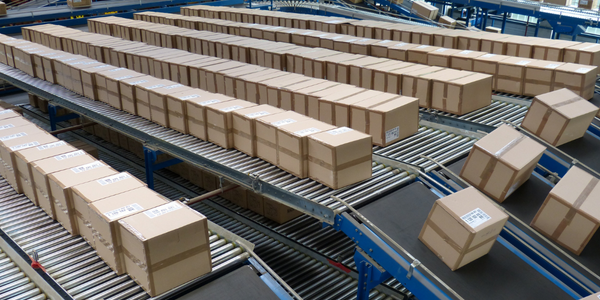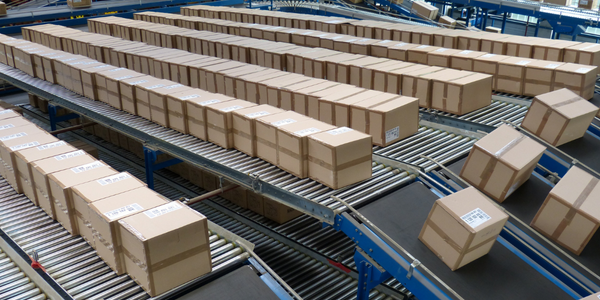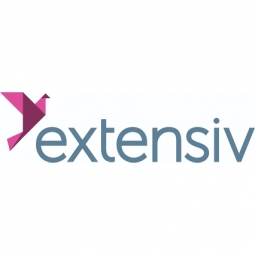Technology Category
- Functional Applications - Inventory Management Systems
- Platform as a Service (PaaS) - Application Development Platforms
Applicable Industries
- Packaging
- Retail
Applicable Functions
- Sales & Marketing
- Warehouse & Inventory Management
Use Cases
- Intelligent Packaging
- Inventory Management
Services
- System Integration
About The Customer
LastObject is a Danish company that was launched in 2019 through Kickstarter. The company is on a mission to create sustainable alternatives to single-use plastic products. Their primary products include the LastSwab, a reusable cotton swab, and the LastTissue, a handkerchief-tissue pack combination. After raising nearly $800,000 each for LastSwab and LastTissue, LastObject started shipping their products worldwide. They aim to offer worldwide seamless fulfillment, integrate with an Asia-Pacific based 3PL, and ship all products with plastic-free, eco-friendly packaging. In response to the COVID-19 pandemic, LastObject created the LastMask, a reusable face mask with a silicone carry case.
The Challenge
LastObject, a Danish company launched in 2019, is on a mission to create sustainable alternatives to single-use plastic products. Their primary products include the LastSwab, a reusable cotton swab, and the LastTissue, a handkerchief-tissue pack combination. After raising nearly $800,000 each for LastSwab and LastTissue, LastObject started shipping their products worldwide. However, they faced challenges with international shipping, including handling taxes and other legal issues. Packages would occasionally not reach the customer due to customs issues and would have to be resent, wasting time for all involved. LastObject hoped to find an Asia-Pacific based shipping solution that worked with Skubana, their existing operations platform, to seamlessly fulfill orders to Asian and Australian customers. They also wanted their packaging to be plastic-free, requiring support from their potential fulfillment partner.
The Solution
LastObject partnered with Skubana, an operations platform that could manage orders across dozens of platforms, including websites such as Shopify and eBay. This allowed LastObject to get a complete view of their sales channel activity. They also partnered with Floship, a fulfillment partner that reached out after backing the Kickstarters. Floship was a better fit for many of their processes, including their plans to integrate it with Skubana. In May of 2020, LastObject signed on with Floship and was set up in their Hong Kong warehouse, ensuring easy shipping to both Asian and Australian customers. Floship worked hard to achieve LastObject’s goal of packaging all orders without plastic. They helped LastObject source the correct packaging and ensure they were supporting LastObject’s mission of environmental sustainability. Since Floship integrates directly with Skubana, LastObject is able to monitor available supply while selling single-use plastic alternatives to regions that need it most.
Operational Impact
Quantitative Benefit

Case Study missing?
Start adding your own!
Register with your work email and create a new case study profile for your business.
Related Case Studies.

Case Study
Improving Production Line Efficiency with Ethernet Micro RTU Controller
Moxa was asked to provide a connectivity solution for one of the world's leading cosmetics companies. This multinational corporation, with retail presence in 130 countries, 23 global braches, and over 66,000 employees, sought to improve the efficiency of their production process by migrating from manual monitoring to an automatic productivity monitoring system. The production line was being monitored by ABB Real-TPI, a factory information system that offers data collection and analysis to improve plant efficiency. Due to software limitations, the customer needed an OPC server and a corresponding I/O solution to collect data from additional sensor devices for the Real-TPI system. The goal is to enable the factory information system to more thoroughly collect data from every corner of the production line. This will improve its ability to measure Overall Equipment Effectiveness (OEE) and translate into increased production efficiencies. System Requirements • Instant status updates while still consuming minimal bandwidth to relieve strain on limited factory networks • Interoperable with ABB Real-TPI • Small form factor appropriate for deployment where space is scarce • Remote software management and configuration to simplify operations

Case Study
Digital Retail Security Solutions
Sennco wanted to help its retail customers increase sales and profits by developing an innovative alarm system as opposed to conventional connected alarms that are permanently tethered to display products. These traditional security systems were cumbersome and intrusive to the customer shopping experience. Additionally, they provided no useful data or analytics.

Case Study
How Sirqul’s IoT Platform is Crafting Carrefour’s New In-Store Experiences
Carrefour Taiwan’s goal is to be completely digital by end of 2018. Out-dated manual methods for analysis and assumptions limited Carrefour’s ability to change the customer experience and were void of real-time decision-making capabilities. Rather than relying solely on sales data, assumptions, and disparate systems, Carrefour Taiwan’s CEO led an initiative to find a connected IoT solution that could give the team the ability to make real-time changes and more informed decisions. Prior to implementing, Carrefour struggled to address their conversion rates and did not have the proper insights into the customer decision-making process nor how to make an immediate impact without losing customer confidence.

Case Study
IoT Data Analytics Case Study - Packaging Films Manufacturer
The company manufactures packaging films on made to order or configure to order basis. Every order has a different set of requirements from the product characteristics perspective and hence requires machine’s settings to be adjusted accordingly. If the film quality does not meet the required standards, the degraded quality impacts customer delivery causes customer dissatisfaction and results in lower margins. The biggest challenge was to identify the real root cause and devise a remedy for that.

Case Study
Zenon the Ideal Basis for An Ergonomic HMI
KHS develops and produces machines and equipment for filling and packaging in the drinks industry. Because drinks manufacturing, filling and packaging consist of a number of highly complex processes, the user-friendly and intuitive operation of equipment is increasingly gaining in significance. In order to design these processes as simple as possible for the user, KHS decided to introduce a uniform, transparent and standardized solution to the company. The HMI interface should meet the requirement for people with different qualifications and enable them to work on a standard platform.








